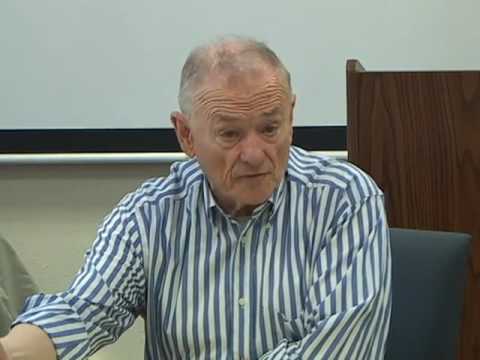Ronald J. Grele’s career as a historian took him from a position as a young faculty member at California State University Long Beach to Columbia University in New York City—with a number of prestigious stops in between.
And throughout his career, said the five men and women who highlighted aspects of his work, he contributed to the evolution of oral history, challenging practitioners to a deeper understanding of what they’re doing and how they’re doing it.
- Andor Skotnes of The Sage Colleges described Grele as “deeply committed to social justice,” from his earliest days as a young faculty member.
- Luisa Passerini of the University of Turin and European University in Florence, Italy, speaking via Skype, recalled her long association with Grele, beginning when she met him in 1979 at an international conference at the University of Essex. “We did not believe that an American could be so theoretical,” she said of the scholarly paper he presented.
- Alexander Freund of the University of Winnipeg said Grele’s work illustrates that the meaning of an oral history interview isn’t self-evident but must be decoded. “We need to read between the lines,” he said.
- John (Jack) Kuo Wei Tchen of the Asian/Pacific/American Studies Program and Institute at New York University said one of Grele’s key contributions to oral history practice is emphasizing the importance of asking people if they think their experience is typical of the experiences other similarly situated people have. That practice, Tchen said, forces people to put themselves into a community context.
- Mary Marshall Clark, who now directs Columbia’s Center for Oral History Research, noted that Grele has conducted more than 400 oral history interviews and has “a passion for conversational narrative.”
For his part, Grele explained his life’s work as reflecting his interest in how people construct history.
“I got involved in oral history because deep down, I knew people had more interesting lives than I did,” Grele said. “People have had lives worth knowing about.”
Grele, who served as OHA president in 1988, said that in the early years, oral history reflected a naïve populism combined with sentimentalism that led to the idea that “people are always right.”
“It’s kind of a naïve approach to our work,” he said.
He also lamented what he suggested is an excessive focus on “little stories,” like those StoryCorps collects.
“The story isn’t enough,” Grele said. “You’re supposed to be doing something called history.”
